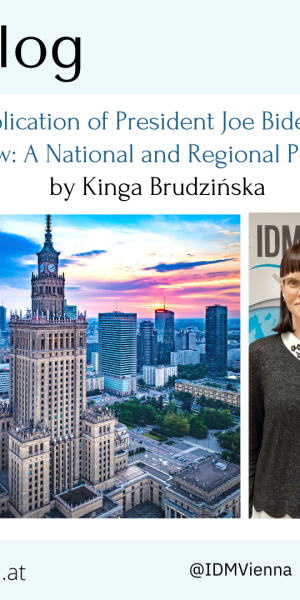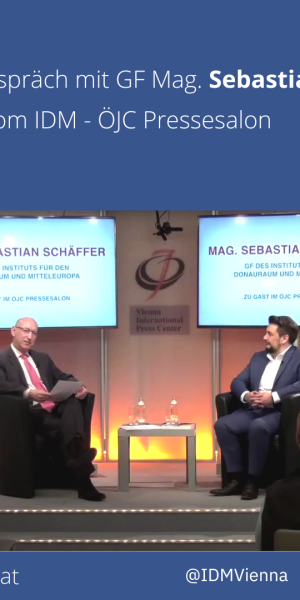IDM Short Insights 22: Controversies over the sanctioned Russian delegates visiting Vienna
It has been nearly a year since Russia launched a full-scale invasion of Ukraine inflicting immense suffering to the civilian population, violating international law and challenging international security architecture. Despite sanctions and a visa ban, the Russian delegation will attend the Winter Meeting of the OSCE Parliamentary Assembly on 23 and 24 February in Vienna. Sebastian Schäffer, IDM’s Managing Director, sums up the controversy around it in the newest Short Insight.
Transcript:
One year ago, the world watched in horror as the Russian Federation launched a full-scale invasion of Ukraine, causing a trail of destruction and countless lives lost. The invasion was a clear violation of international law and an affront to the principles of peace and sovereignty. The war has also taken a toll on the wider global community, heightening tensions and threatening international security.
Peace in Europe is something that the Organisation for Security and Cooperation in Europe (OSCE) should provide, yet has failed to do so. It is a very unfortunate coincidence that the winter conference of the OSCE Parliamentary Assembly is taking place on 23rd and 24th February and that the delegation from Moscow will be able to travel to Vienna despite the visa ban issued against the Russian parliamentarians. However, also in past years this conference was organized around these dates and there is an obligation to allow participation, as Vienna is the official seat of the OSCE. Otherwise, Austria would be violating international law, and this might have further ramifications, since the capital is home to other international organisations.
Also, dialogue is a good thing, right? Well certainly, but already before the unjustified attack on Ukraine and all the heinous atrocities committed by the Russian regime, at the OSCE there was merely the statement of the different points of views rather than trying to work on common ground. It is also unclear how a negotiation between Kyiv and the Kremlin would look like given that the Russian annexation of parts of Ukraine not only violates international law, but also creates a constitutional deadlock, as neither party could cease claims on these territories.
Therefore, the decision of the Ukrainian delegation to not participate in the meeting is understandable. What is incomprehensible, though, is the alleged invitation of the Russian delegation to attend a ball, something forbidden by their very limited visas, as Austrian authorities have stated. Clearly, some people are still willing to bow before a president who has not only destroyed the security architecture in Europe, but numerous lives on delusional claims.
This might be of inerest to you:
Four Challenges Facing a Ukrainian-Russian Truce. Part I: The Constitutional Impasse, Andreas Umland



